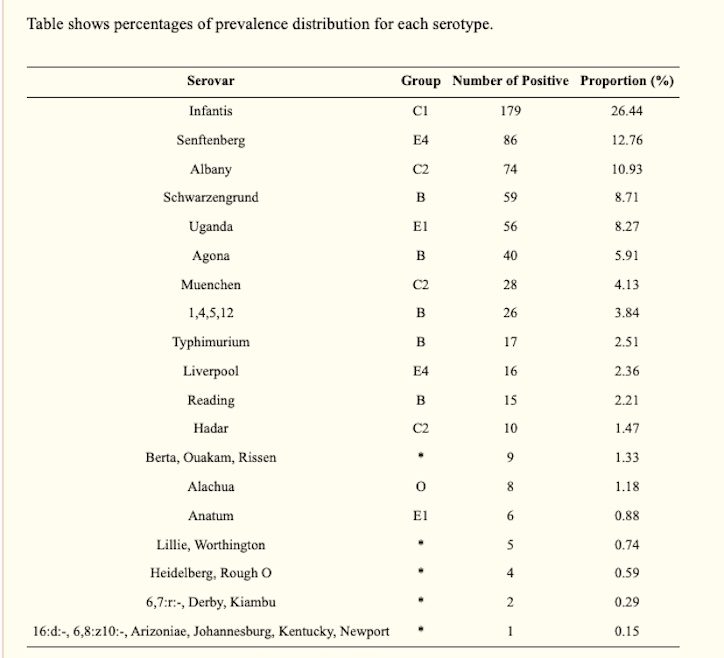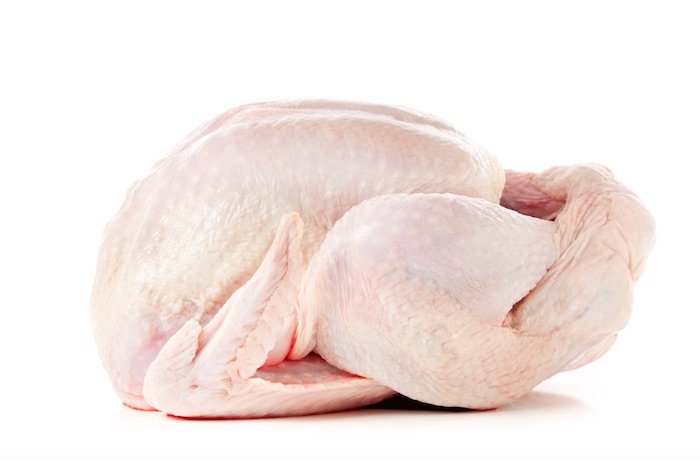Salmonella Infantis, which causes serious illness in humans, is widespread in the chicken industry. Now, a recent study shows it’s prevalent on turkey farms, too.
The study, conducted by researchers at North Carolina State University, analyzed four years of data collected from turkey farms in North Carolina, the nation’s second-largest turkey producer after Minnesota. The researchers analyzed 1,603 swabs from employee shoe coverings collected from antibiotic-free and conventional facilities 14 days before processing from 2017 – 2020.
Researchers found that two factors had the most impact on the likelihood of a sample testing positive – the season of the year and the age of the farm
The number of samples that were positive for Salmonella on antibiotic-free farms was higher in the second half of the year with peaks from September to November. And farms that were less than 20 years old were less likely to have swabs test positive for Salmonella than farms that were more than 20 years old.
Of the 981 samples collected from conventional flocks, 362 (37 percent) tested positive for Salmonella. Of the 622 samples collected from antibiotic-free flocks, 315 (51 percent) tested positive for Salmonella. When they broke down the total number of positives by serotype, Salmonella Infantis came out on top with 26.44 percent of the samples. Salmonella Senftenberg was a distant second with 12.76 percent.

The study’s finding of the prevalence of Salmonella Infantis in the turkey industry tracks with data from the U.S. Department of Agriculture’s Food Safety and Inspection Service (USDA FSIS) Salmonella sampling program. The agency collects samples from poultry at processing facilities and publishes the results on its website quarterly.
This information shows Salmonella Infantis first showing up in the top 10 serotypes found on turkey samples in the third quarter of the fiscal year ended September 30, 2017. Over the next few years, it stays in the top serotypes discovered slowing making its way to the top. For five of the eight quarters in fiscal years 2020 and 2021, it was the No. 1 or No. 2 serotype found in turkey samples.
This isn’t good news.
Salmonella Infantis started showing up in chicken samples years before it made its way to the turkey industry. It’s so widespread in the chicken industry it confounds outbreak investigations.
In February 2019, when the Centers for Disease Control and Prevention (CDC) issued its final report on A Salmonella Infantis outbreak linked to chicken, 129 cases had been confirmed from January 8, 2018, to January 27, 2019, and one person had died. The agency added an unusual note to the final report. It read in part: “This investigation is over. Illnesses could continue because this Salmonella strain appears to be widespread in the chicken industry.”
The CDC said that during its collaborative investigation with USDA FSIS the agencies were unable to pinpoint a source of the outbreak because they found the multidrug-resistant strain in 76 samples collected from chicken at processing facilities, from live chickens, and from raw chicken pet food.
A 2021 investigative report from ProPublica revealed the deadly outbreak has been ongoing since 2018 with the CDC receiving dozens of reports of illness each month.
“Many people are still becoming ill, and some of them gravely ill,” Robert Tauxe told ProPublica. Tauxe is the director of CDC’s Division of Foodborne, Waterborne, and Environmental Diseases.

